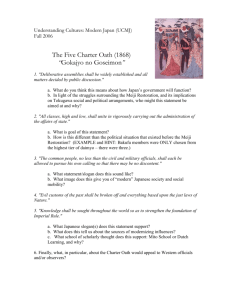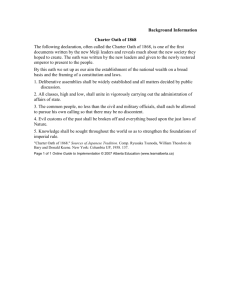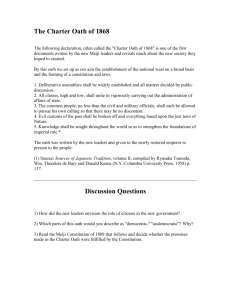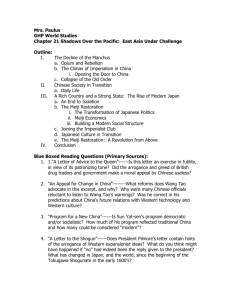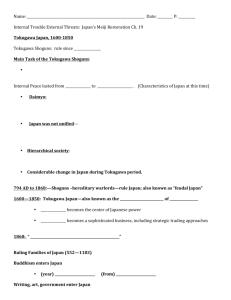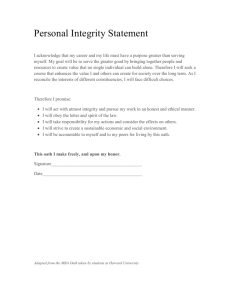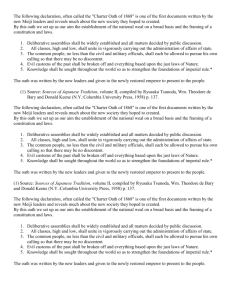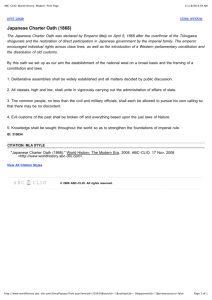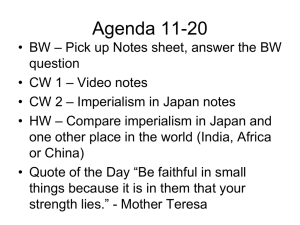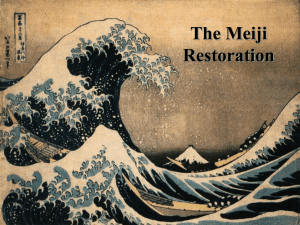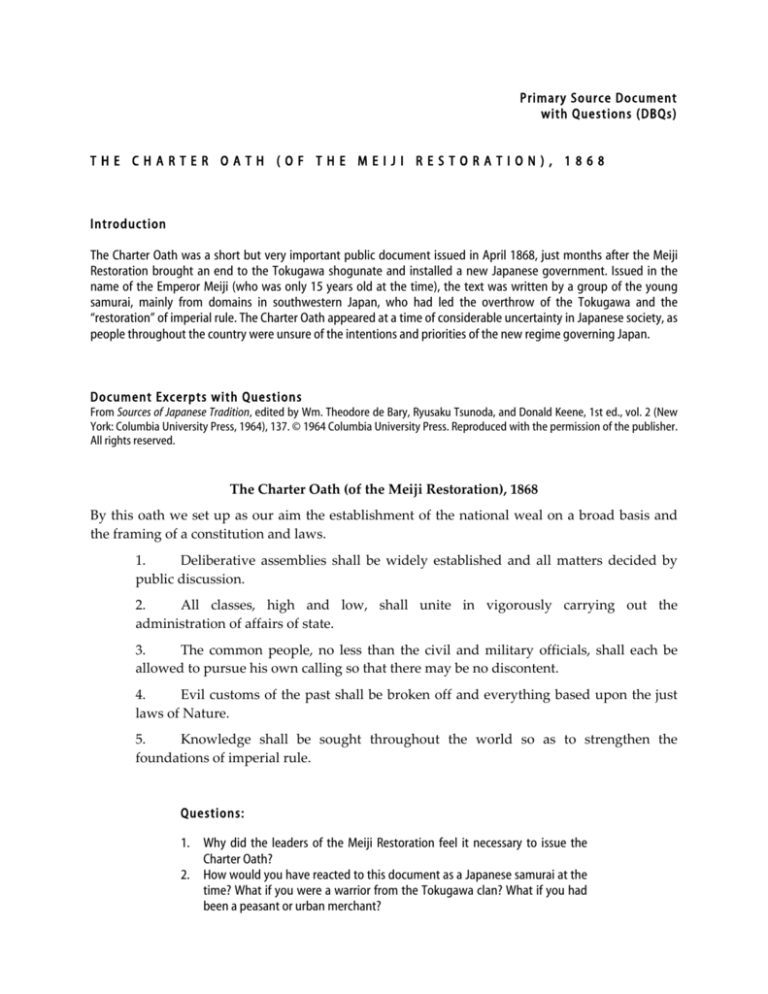
Primary Source Document
with Questions (DBQs)
THE CHARTER OATH (OF THE MEIJI RESTORATION), 1868
Introduction
The Charter Oath was a short but very important public document issued in April 1868, just months after the Meiji
Restoration brought an end to the Tokugawa shogunate and installed a new Japanese government. Issued in the
name of the Emperor Meiji (who was only 15 years old at the time), the text was written by a group of the young
samurai, mainly from domains in southwestern Japan, who had led the overthrow of the Tokugawa and the
“restoration” of imperial rule. The Charter Oath appeared at a time of considerable uncertainty in Japanese society, as
people throughout the country were unsure of the intentions and priorities of the new regime governing Japan.
Document Excerpts with Questions
From Sources of Japanese Tradition, edited by Wm. Theodore de Bary, Ryusaku Tsunoda, and Donald Keene, 1st ed., vol. 2 (New
York: Columbia University Press, 1964), 137. © 1964 Columbia University Press. Reproduced with the permission of the publisher.
All rights reserved.
The
Charter
Oath
(of
the
Meiji
Restoration),
1868
By
this
oath
we
set
up
as
our
aim
the
establishment
of
the
national
weal
on
a
broad
basis
and
the
framing
of
a
constitution
and
laws.
1.
Deliberative
assemblies
shall
be
widely
established
and
all
matters
decided
by
public
discussion.
2.
All
classes,
high
and
low,
shall
unite
in
vigorously
carrying
out
the
administration
of
affairs
of
state.
3.
The
common
people,
no
less
than
the
civil
and
military
officials,
shall
each
be
allowed
to
pursue
his
own
calling
so
that
there
may
be
no
discontent.
4.
Evil
customs
of
the
past
shall
be
broken
off
and
everything
based
upon
the
just
laws
of
Nature.
5.
Knowledge
shall
be
sought
throughout
the
world
so
as
to
strengthen
the
foundations
of
imperial
rule.
Questions:
1. Why did the leaders of the Meiji Restoration feel it necessary to issue the
Charter Oath?
2. How would you have reacted to this document as a Japanese samurai at the
time? What if you were a warrior from the Tokugawa clan? What if you had
been a peasant or urban merchant?
Primary Source Document with Questions (DBQs) on
THE CHARTER OATH (OF THE MEIJI RESTORATION), 1868
3. What do you think the authors of this document meant by “deliberative
assemblies” and “public discussion”? Does this suggest a commitment to
democratic rule?
4. What did the authors of the Charter Oath believe to be the “evil customs of
the past”?
5. From your further study of the history of Meiji Japan, did the new
government live up to the goals established in the Charter Oath?
Asia for Educators l Columbia University l http: //afe.easia.columbia.edu
Page 2 of 2

